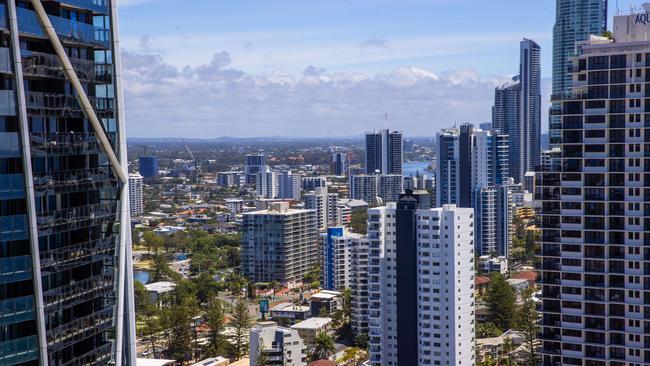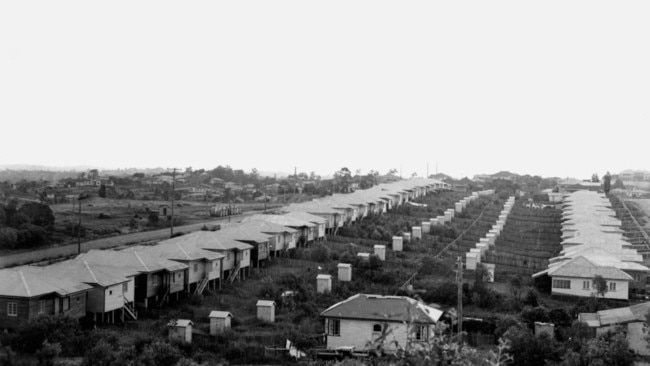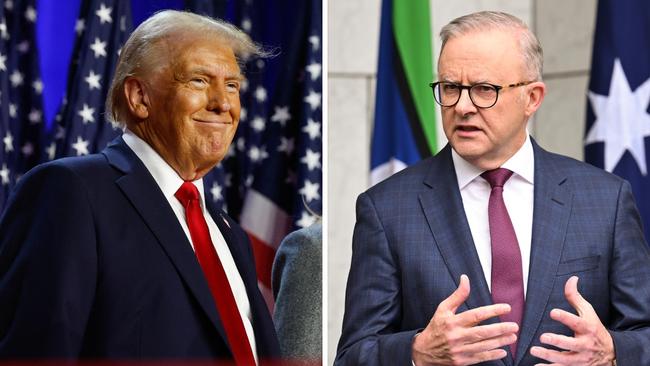Less migrants, more tariffs: New poll shows how both sides of politics dud Aussie voters
A new report finds an electorate that is far more economically interventionist than so-called elites, but also a lot more socially conservative, writes James Morrow.
Opinion
Don't miss out on the headlines from Opinion. Followed categories will be added to My News.
Australian politicians and other members of what is sometimes, mistakenly, called “the elite” lull themselves to sleep with two comforting bedtime stories.
One, which might be called “It Can’t Happen Here”, is the story of how Australia’s electoral system pushes everyone towards the most sensible of centres, keeping the country safe from the waves of populism riling Europe and the US.
The other story is a variation on that theme: “Anyway, We’re Different.”
In other words, Australians are pretty stolid about their politics and have something in their DNA that makes them immune to the charms of Trumpish political messaging.
Yet, if research from The Australian Population Research Institute is anything to go by, these two tales share the same plane of existence with the tooth fairy.

In a new report entitled The Divide Between Elites and the Electorate and released Wednesday in anticipation of an election being called any day now, researchers Bob Birrell and Katharine Betts have taken a deep dive into Australian attitudes not just about immigration (their usual focus) but on the deeper divide between ordinary voters and what they call “the neoliberal, globalising elite.”
Birrell and Betts define the value set of these elites as one which puts an economic premium on freedom of movement for people and capital and goods and services while also holding dear to progressive social positions.
And crucially, Australians are increasingly tired of where these elite policies are taking them.
The defining issue here tends to be immigration: Voters want less of it while various elite interest groups like big business and the universities want more.

According to their survey, 80 per cent of Australians want migration at somewhat or much lower levels, or to at least be kept low enough “so that new arrivals just balance out departures”.
The desire to tap the breaks has only grown in recent years. When the pair asked Australians if they thought “that Australia needs more people” in 2022, 35 per cent said yes. Now, just 27 per cent agree.
Their reasons are not rooted in racism or xenophobia, either, with 76 per cent saying it’s simple economics that high migration was driving up the cost of housing.
This simple fact of supply and demand was endorsed, in a roundabout way, by Labor the other day which matched the Coalition’s policy on putting a pause on foreigners buying property in Australia – though, crucially, Labor hasn’t done anything about reducing the actual numbers of those same would-be buyers coming in.
Further, Birrell and Betts also note that despite record intakes, and appalling recent outbreaks of anti-Semitism, Australia remains “remarkably integrated considering the scale and global spread of migrant source countries.”
“With 30 per cent of the population born overseas, Australia is an outlier.”
But, they caution, Australians’ welcoming nature is increasingly dependent on new migrants signing up to the Australian program of values and way of life.

“There is also a strong belief among migrant voters that loyalty to Australia should
have priority over sectional, ethnic or heritage community,” they write.
“This means the end of the era of multiculturalism in Australia … there can be no repeat of the Frazer and Hawke/Keating years, when politicians cultivated a big multicultural constituency.”
So far, so straightforward, and who can blame Australians who have witnessed everything from the “f*** the Jews” protests at the Opera House to the video of those two Bankstown nurses for saying enough is enough.
But in what may be more worrying news for Australia’s elite and political classes, Birrell and Betts also dived into more Trumpian themes.
What they found is an electorate that is in fact far more economically interventionist than the so-called elites, but also more socially conservative.
Just as in the US, where Donald Trump won a historic return to office on promises of tariffs and protection and bringing manufacturing home, so too are many Australians longing for a similar program here.
By more than four to one (67 to 15 per cent), Australians agreed that “we should protect Australia’s manufacturing, using tariffs if necessary” over getting rid of tariffs “so that we can buy goods more cheaply from overseas.”
The poll also found Australians by good majorities supporting subsidised home construction, and they would also be keen on higher taxes for “high income earners and big business.”
While this news might cheer Laborites and Greenies, on social matters things went the other way. Just 25 per cent of respondents agreed that a woman is anyone who identifies as a woman, no matter how they were born.
Anyone, politician or otherwise, who wants to understand why Australians are so grumpy and say repeatedly that they don’t feel listened to might learn a thing or two from these numbers.
Just as America’s politics are realigning, so to might Australia’s, whether elites like it or not.





